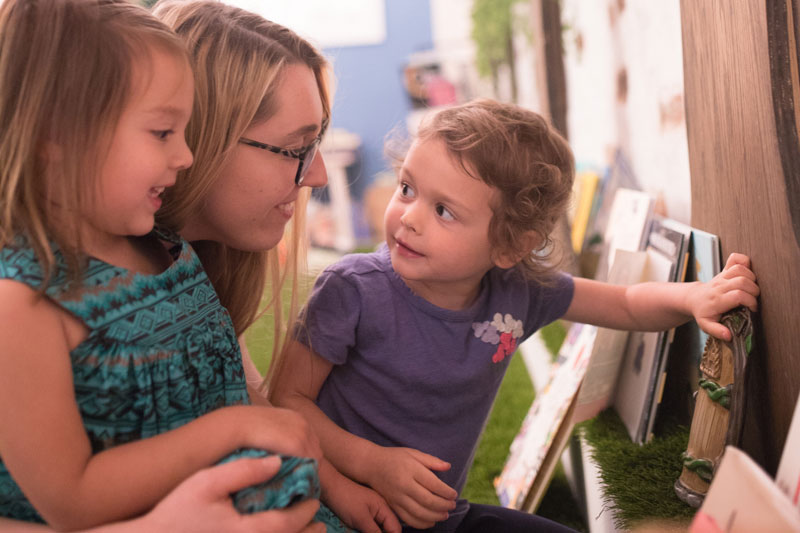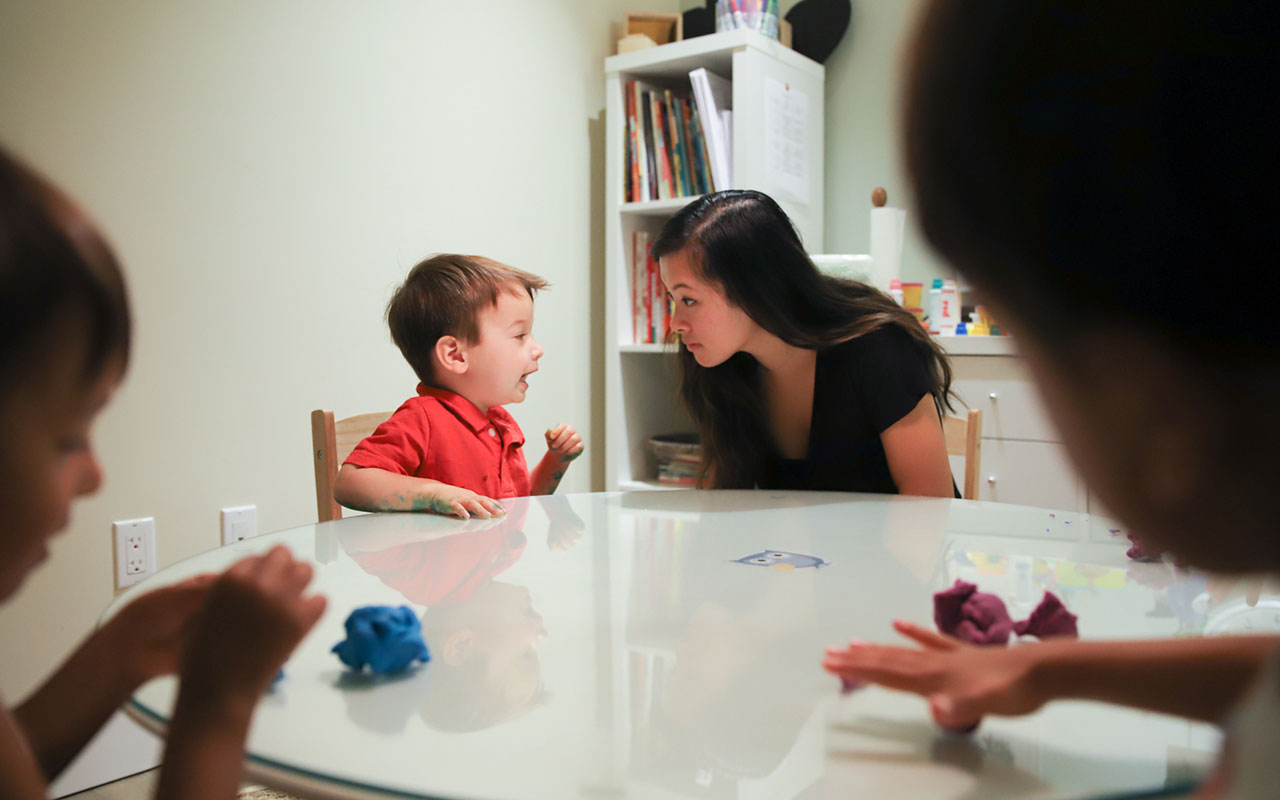Early literacy skills can be developed in a variety of ways – through play, classes, story time, and more. But it’s been proven, again and again, that the most beneficial way to build literacy skills in a child is through communication.
A child’s language grows through both casual conversation and focused, detailed interaction. After all, it isn’t above the quantity of words a child can say – it’s about the quality of what they are saying. When you invite children to engage in meaningful conversations, they are building language while also developing comprehension, critical thinking skills, and empathy.
But what makes a quality conversation? More than anything, it’s showing your child that you are invested in what they have to say and you are engaging them based on their interests. Ask questions. Take turns speaking. Keep the conversation going for a while. All of these things allow children to invest in a conversation and clearly see that their caregiver is invested as well.
There are always opportunities for language building and conversation throughout each day, and all of them are simple and right under your nose!

Incorporate storytelling.
If you’re visiting a place you’ve been before, ask your child to recount what happened last time you were there. When you go to the museum, ask what they know about dinosaurs and if they’d be excited or scared to see a real dinosaur. These little moments add up and give children room to explore their sense of self and also their imaginations.
Look for words, pictures, and activity all around you.
This is a very easy exercise in New York City – there’s always something happening! Even before your child is ready to read, they can often use images and context clues to depict what a sign or poster is saying. Ask them what they think it might say – or, with an image, what they like about it or what they find most interesting. Allowing children to express their opinions and ideas builds confidence and strength of conviction – which is important at any age.
Introduce synonyms and antonyms.
When a child first starts developing language, they discover the simplest words. However, we know they are plenty of other options to say “big” or “small” that are often more descriptive. Talk about words that have the same or different meanings and how to incorporate them in a sentence. It’s always exciting to hear those ideas take shape to make for bigger sentences and thoughts.

Communication is key and is something that can be taken for granted. Kids will learn how to speak and interact with adults and peers – but the earlier those skills take shape, the better.
So take some time and chat with your little ones! They’ll love it – and we guarantee you’ll learn something new.
